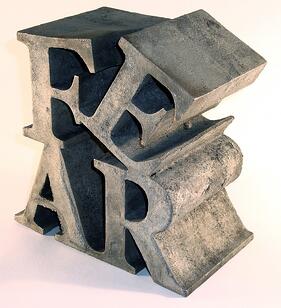I get calls every month from people who say they are surprised that they have received a summons!
Let’s see….
- You took our loans or charged up credit cards.
- Due to circumstances beyond your control, you have not been able to make the minimum required payments due each month.
- You received several calls, letters or emails from the creditors, but ignored them.
- Someone knocks on your door and hands you a SUMMONS!

SURPRISED? Now what?
First…DON’T PANIC!
- You are not going to jail!
- You will not have to go to court!
- They are not going to garnish your next paycheck (UNLESS YOU IGNORE THE SUMMONS)
- They are not going to garnish your bank account. (UNLESS YOU IGNORE THE SUMMONS)
- They are not going to come take all of your belongings!
- At least….NOT YET!
If you have secured loans…where there is collateral (home, car, boat, RV, motorcycle, etc.), the situation is different!
If you default on a loan where there is collateral, the creditor or collector may decide to repossess the item! Be AWARE!
OK, but in this article, I’m taking about UNSECURED DEBT:
- Credit cards
- Personal loans
- Medical bills
- Personal line of credit
- Store cards, etc.
- Auto Repo
To prevent a summons and the start of the “legal” process, you need to understand the basic process and/or option a creditor or collector has.
The Summons Process
- After attempting to contact you (remember all those calls, letters and emails?)
- The creditor or collector may retain an attorney to
- You will receive a SUMMONS. This is usually hand delivered, but can be left with someone at your residence. Sometimes the server will deliver to your place of employment.
- The summons will state something to the effect that you have 20 or 30 days after receipt of the summons to ” ANSWER THE CLAIM.”
- An answer is your side of the story that you would file ONLY if you can PROVE WITH DOCUMENTATION, that you do not owe the amount of the claim
- If you owe the debt, there is no reason to spend the time or money for an answer. YOU DO NOT NEED TO GO TO COURT.
- Contact the attorney for the plaintiff (the creditor). If you are employed and receive normal W-2 wages, you need to try and work out a repayment plan so they do not proceed with the legal action.
So, what can you do or could you have done to
PREVENT THE SUMMONS?
FIRST OPTION:
Contact the creditor/collector and try to work our a “catch up” plan to start repaying the debt you owe.
The problem with this option is that you most likely cannot afford the payments.
The same is true with a Debt Management or Credit Counseling Program.
Not a bad idea IF YOU CAN AFFORD THE PAYMENTS!
SECOND OPTION:
Once your account has been charged off (the creditor has kind of “given up” on collecting the debt on their own), the account is usually placed with a DEBT COLLECTOR.
Now you can try to SETTLE the account for LESS THAN THE FULL BALANCE.
The process is time consuming and stressful, but usually (not all the time), the collector will agree to a SETTLEMENT AGREEMENT.
This agreement is usually for 40%-70% (in some cases even lower) of the balance due.
Of course, the collector wants the amount of the settlement in a LUMP SUM, but I doubt you have that kind of money. If you did, you probably would not have gotten behind in the first place! RIGHT!
Yes, you can also negotiate TERMS/MONTHLY PAYMENT PLAN on the settlement.
Again, they want the monthly amount as large as possible and the length of the plan to be as little as possible. You have to negotiate strongly to get a plan that fits your budget. Not easy!
IF ALL ELSE FAILS….BANKRUTPCY MAY BE YOUR ONLY OPTION
If you failed in trying to work out a reasonable repayment plan.
If you failed in trying to negotiate a reasonable settlement.
Then you may the assistance of a Bankruptcy Attorney to protect you from:
- Bank Levies
- Wage Garnishment
Bankruptcy is a “scarry” word to most people, but bankruptcy laws are to help us protect ourselves from creditors and/or collectors devastating our lives.
Contact several attorneys in the area where you live.
The initial appointment (may be by telephone only) should be FREE. If not, keep looking!
To wrap up…
When you find yourself in a financially stressful situation whereby you are falling behind or simply cannot make the required monthly payments due, DO NOT IGNORE THE OPTIONS YOU HAVE FOR REPAYMENT OR SETTLEMENT!
Be pro-active…don’t “hide you head in the sand” so to speak.
For more information…click below:







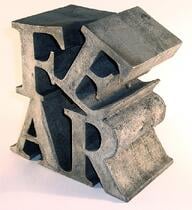


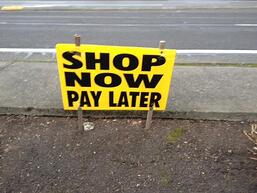 Sadly, when faced with the annoying and often
Sadly, when faced with the annoying and often 
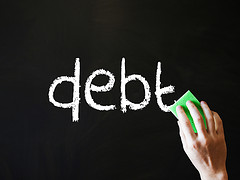 Why is that? Why do so many people, according to the article...1 in 3...have debt issues. Notice, the article didn't say they just had debt, the article stated that 33% of Americans have DEBT COLLECTION PROBLEMS.!
Why is that? Why do so many people, according to the article...1 in 3...have debt issues. Notice, the article didn't say they just had debt, the article stated that 33% of Americans have DEBT COLLECTION PROBLEMS.!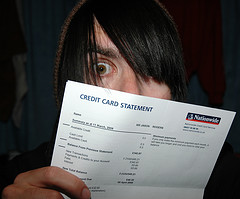
 Living in Texas (I grew up in Dallas) has a lot of advantages, but none as important as protection from debt collectors.
Living in Texas (I grew up in Dallas) has a lot of advantages, but none as important as protection from debt collectors.